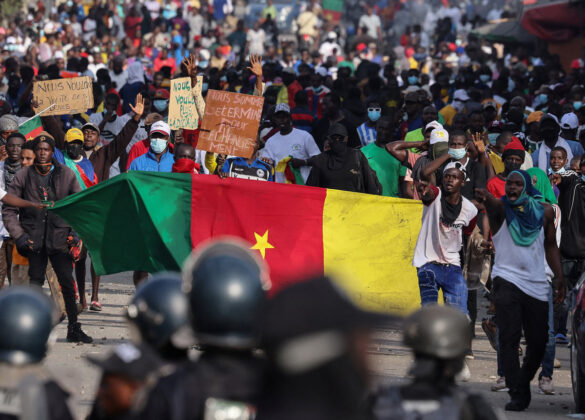The persistent political stalemate in Cameroon is a direct result of neocolonial structures that continue to define and limit genuine political competition, according to a damning analysis by political scholar Dr Munjah Vitalis. He argues that a network of economic and military accords binding the country to former colonial powers has rendered authentic democratic transformation “exceedingly difficult.”
The analysis comes against a backdrop of fresh political turmoil, following the October 12 Presidential election where the incumbent, 92-year-old Paul Biya, was declared the winner. The official result, which overturned widespread expectations of a victory for the popularly favoured candidate Issa Tchiroma Bakary, has triggered protests that have broken out in major cities across the country.
In his view, the system ensures that “access to power is conditioned by alignment with external interests rather than by domestic legitimacy.” This dynamic, Dr Vitalis suggests, explains why widespread discontent and opposition activism often fail to produce political change, as “the state’s survival is anchored in international validation and material support from foreign patrons.”
The recent electoral dispute and the ensuing public anger provide a stark illustration of this theory in practice. Despite the visible demonstrations, Dr Vitalis’s work implies that the protests struggle to dismantle the structural dependencies that ultimately determine political outcomes.
The analysis draws on the theory of Kwame Nkrumah to posit that neocolonialism operates through “the subtle preservation of dependency rather than overt control,” ensuring that postcolonial sovereignty remains “largely nominal.” Within this framework, Cameroon’s political elite functions as what Frantz Fanon described as a “national bourgeoisie” serving as an “intermediary for imperial interests, rather than an agent of national liberation.”
Furthermore, Dr Vitalis asserts that the silence of the broader international community is a form of active “complicity.” He contends this is not a matter of indifference but “a strategic decision to preserve geopolitical stability and economic continuity over democratic accountability.”
Echoing academic Mahmoud Mamdani, the opinion piece suggests colonial logics of control persist beneath the surface of independence, creating a “bifurcated state” where the forms of democracy mask deeper structural dependencies. Consequently, he concludes that popular protest alone is insufficient to break these entrenched ties.”
In this context,” Dr Vitalis states, “even mass protest cannot easily sever the neocolonial ties that determine who governs, how power is exercised, and whose interests are ultimately served.” The path to genuine democracy, he implies, requires dismantling these foundational international power structures.

